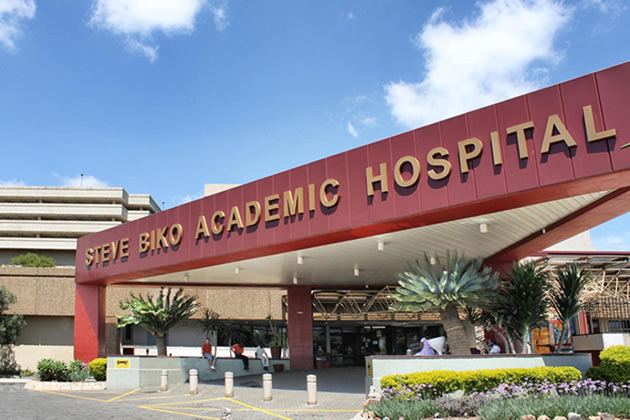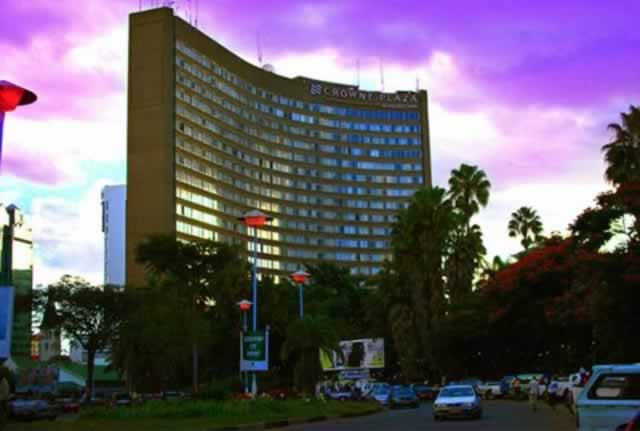Treatment denial in SA?


Two sides of the same coin . . . Steve Biko Hospital allegedly denied a Somali girl treatment for a deadly condition
Tichaona Zindoga Acting Features Editor
This week, Zimbabwe once again received morbid news from South Africa. The country has received 1 418 body bags from South Africa in the past six months, as Zimbabweans were repatriated after dying from various ailments.
On average, Zimbabweans received 100 such grim packages from its southern neighbour.
The other time Zimbabwe receives such morbid news and related packages, it is when there is flare-up of xenophobic violence that targets black nationals who die at the hands of hoodlums.
And given the fact that the victims would have fallen due to preventable or controllable diseases such as broncho pneumonia, Hepatitis B, meningitis, pulmonary TB, pneumonia hepatitis, HIV and Aids and other retro-viral diseases, as Zimbabwe’s consul-general to South Africa, Mr Batiraishe Mukonoweshuro, revealed, red flags about lack of treatment are being raised – and they are not particularly new allegations.
Reports abound that Zimbabweans and other foreign nationals, especially illegal immigrants and asylum seekers are being denied medical care or forced to pay upfront.
Zimbabweans with relatives in South Africa have also confided that they take ARV and other drug supplies from the country and send them to their relatives who cannot access the drugs or medical care there.
“We take medicines from her centre in Gokwe and send them every month,” said one woman who cannot be named for professional reasons.
“In fact, our relative has friends who also require the same ARVs so we also take for them and send the packages together. And now it is becoming easier because we send three months supplies,” she added.
But not so lucky are Zimbabweans in prisons – a reported 4 000 – and immigration detention centres.
Sources say these people are denied access to medical care and often go for months, in the case of the latter, before being deported.
And die at home.
Yesterday, The Herald sought comment from the South African ambassador to Zimbabwe but he did not answer his phone or reply to emailed questions sent through his aide at the embassy.
However, various reports and accounts have painted a grim situation regarding lack of medical access by foreigners in South Africa which also strongly suggests South Africa flouting human rights and its own and international obligations.
In 2011, two organisations -Southern African Migration Programme (SAMP) and Open Society Initiative for Southern Africa (OSISA) – conducted a research study and came up with a paper titled, “Medical Xenophobia: Zimbabwean access to health services in South Africa”.
The authors of the report stated that: “Medical xenophobia manifests itself in several ways in the public health system. Among the practices uncovered in this study were the following: first, patients are required to show identity documentation, proof of residence status and evidence of a home address before treatment is provided. Patients who, for one reason or another, do not have such documentation on their persons can be denied treatment.
“Second, communication difficulties arise when health staff refuse to
communicate with patients in a common language or allow the use of trans- lators.
“Third, treatment is often accompanied by verbal abuse and xenophobic statements and insults. Fourth, non-South African patients often have to wait until all South African patients have been attended to even if they have been waiting longer for treatment.
“Finally, migrants and refugees have such difficulty accessing anti-retroviral therapy (ART) for HIV in public institutions that many are forced to rely on the NGO sector. All of these manifestations of medical xenophobia are examined at length, with supporting testimony, in this report. The report concludes with a set of recommendations for rooting out xenophobia in the public health system.”
During the study carried out in two major South African cities, it was revealed that xenophobia was deeply institutionalised and attitudes were that foreigners were “swamping” services.
“Two-thirds of South Africans in the 2006 survey felt that foreign migrants ‘use up’ resources and 49 percent that they bring diseases when they come to South Africa.16 South Africans also feel that the right to access health services should depend on citizenship and legal status in the country.
“Over 95 percent said citizens should always enjoy the right to social services (including health) and ART (anti-retroviral therapy for HIV and AIDS).
“However, only 50 percent felt that legal migrants should enjoy the same right. The figures for refugees and undocumented migrants were even lower (27 percent and 13 percent respectively).
“Two-thirds felt that legal migrants should always have the right to access ART but, again, fewer thought that refugees and undocumented migrants should be eligible (50 percent and 38 percent respectively).
“Fully 43 percent said that undocumented migrants should always be denied ART. Finally, 61 percent said they supported a policy of deporting foreign citizens with HIV and AIDS (while only 24 percent were opposed).
Sixty percent favoured a policy of mandatory HIV tests for refugees,” said the report.
With such negative attitudes, the stage is set for medical xenophobia.
Breach of human rights
“Medical xenophobia is a fundamental breach of South Africa’s Constitution and Bill of Rights, international human rights obligations and various professional codes of ethics governing the treatment of patients,” the study notes.
In an article entitled, “Refugees: Out of the frying pan and into the fire of South Africa’s healthcare system” published in October last year journalist Andrea Teagle also noted that South African was not measuring to its local and international obligations.
“Signatory to the UN refugee convention, and boasting arguably the most progressive constitution in the world, South Africa is often perceived to be a safe-haven for refugees fleeing conflict and persecution in their own countries. This is a misperception,” said Teagle.
But South Africa “consistently” failed to meet its legal obligations to protect asylum seekers.
Teagle noted that after the laborious task of looking for refugee status for the 61 500 asylum seekers was only made more daunting by the fight to access healthcare.
Last year, a gravely ill 12-year-old Somali girl finally received the medical treatment she needed for a heart condition after a settlement was reached in the High Court being turned away from the Steve Biko Hospital because she was undocumented and her family was unable to pay a R250 000 deposit.
She only had South African Lawyers for Human Rights to thank and the story received widespread media coverage.
Vulnerable
Experts say that South Africans would also benefit from the treatment of foreigners – rather than their exclusion – as communicable diseases such as tuberculosis put whole populations at risk and South African citizens become more vulnerable when diseases are not properly detected and treated.
Agnes Odhiambo of the Human Rights Watch wrote in a local paper that when care is denied or delayed, for example to pregnant women or those in labour, they can develop complications that are costlier to treat.
“Also, short- and long-term disability causes migrants who would otherwise be independent and productive to become economically dependent on South African resources.”
She urged the South African government to clearly spell out the healthcare entitlement for refugees, asylum seekers and undocumented migrants, insisting that the protections provided to these groups adhere to the South African Constitution and international human rights law.
“Only an inclusive system can ensure the health and survival of all those living in South Africa,” says Odhiambo.








Comments